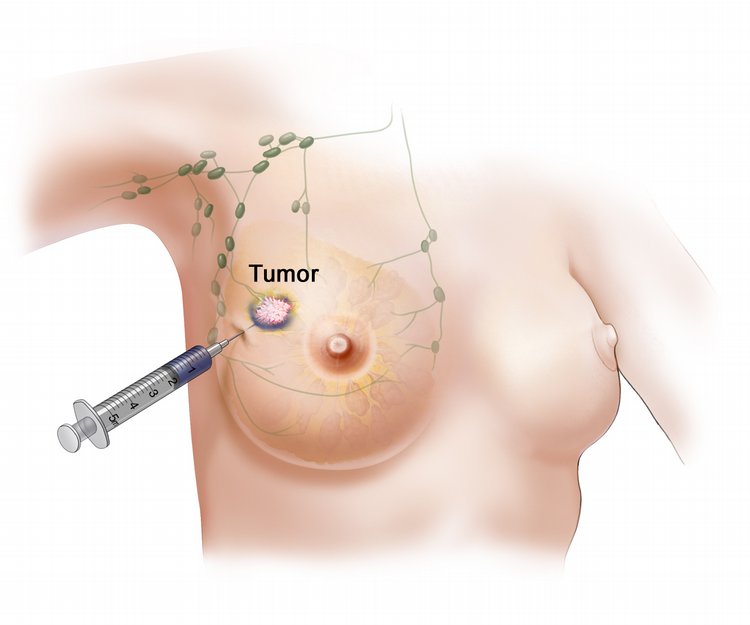Breast Biopsies
May be recommended because of an abnormal mammogram or because of an abnormal exam, even if the mammogram looks ok. Biopsies are usually done under local anesthesia on an outpatient basis.

Genetic Tests
Cannot detect cancer, but they can find two genes (called BRCA1 and BRCA2) that greatly increase the risk of breast and ovarian cancer. These genes are rare in the general population, but women with strong family histories of breast cancer should discuss testing and counseling with their doctor.
How bad is it?
There are two main types of breast cancer. Carcinoma in situ (DCIS) is the mildest form. Most women will be cured simply by surgery to remove the small tumor (lumpectomy) and getting radiation therapy. But they must be monitored for new tumors. Invasive breast cancer is more serious.
Doctors base treatment on several factors:
- Tumor size. Small cancers have the best outlook.
- Cell receptors. Cancer cells that bind to the female hormones estrogen (ER-positive cells) or progesterone (PR-positive cells) can respond well to hormone therapy and are easier to treat than cancers that lack hormone receptors.
Cells that show high levels of a protein called HER2-/neu tend to develop much more aggressive breast cancers. A test will determine your level of HER2/neu and help your oncologist decide if you are a good candidate for treatment with drugs such as Herceptin
Lymph gland spread.
When breast cancer spreads, it reaches lymph glands in the armpit (axillary nodes) first. Doctors check for this by removing some glands to look for cancer. This technique is called sentinel lymph node biopsy. This procedure begins with the injection of a blue dye and/or a small amount of radioactive material into the area near the tumor. The lymphatic fluid carries the dye to the first node in its path – the sentinel node. This is identified and removed and examined.
- Distant spread. A cure is unlikely if breast cancer spreads to other organs but treatment can still be very helpful.
- The size of the tumor in relation to the size of your breast.
- Whether you have gone through menopause
At any stage of disease, care is available to control pain and other symptoms, to relieve side effects of treatment, and to ease emotional concerns.
